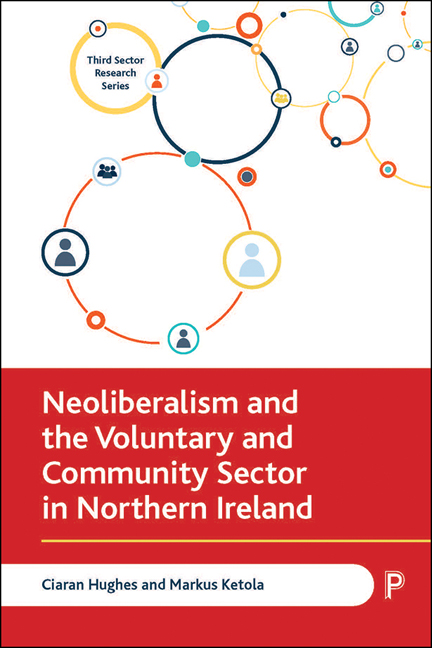Book contents
- Frontmatter
- Contents
- List of abbreviations
- Acknowledgements
- Series editor’s foreword
- one Introduction
- two Neoliberal enrolment? The ‘partnership turn’ in government rhetoric and policy
- three Getting connected: celebrating the value of connections and networks
- four Inside the networks: the rhetoric and the reality
- five Independence of voice, purpose and action
- six Conclusion
- Notes
- References
- Index
one - Introduction
Published online by Cambridge University Press: 30 April 2022
- Frontmatter
- Contents
- List of abbreviations
- Acknowledgements
- Series editor’s foreword
- one Introduction
- two Neoliberal enrolment? The ‘partnership turn’ in government rhetoric and policy
- three Getting connected: celebrating the value of connections and networks
- four Inside the networks: the rhetoric and the reality
- five Independence of voice, purpose and action
- six Conclusion
- Notes
- References
- Index
Summary
Policymakers often place rather unrealistic expectations on the shoulders of civil society, including that aspect of civil society that is commonly referred to as the voluntary and community sector (VCS). In policy narratives, the VCS is often described as a facilitator of localised voluntary action that can help address unmet social needs; it is seen to provide a ‘voice’ for the poor and marginalised, and in the case of Northern Ireland (NI) in particular, the VCS was believed to be a bridge between fragmented communities. In the context of these optimistic accounts of voluntary and community action, the VCS has come to be seen as a key agent in the drive towards a more egalitarian, prosperous and democratic society. The formal organisations that inhabit civil society are also seen as central actors in the delivery of governance reforms that will enable governments to empower communities and make services more responsive to citizen demands, for it is through the VCS that service designers are able to tap into grassroots knowledge and expertise. By working in partnership with civil society, it is claimed, government will deliver services more effectively and efficiently, but it will also make decisions more democratically. But to what extent does the reality match these optimistic narratives?
Answering this question is a central motivation behind this book. By taking a detailed look at the case of NI, we explore the nature and extent of neoliberal policy reforms in the region, the repeated ‘partnership turns’ in government rhetoric and policy, and the impact this has had on the Northern Irish VCS. As we do so, we draw on a substantial body of empirical research conducted between 2013 and 2019, as well as a review of relevant publications from the UK and NI governments. We explore the narratives that surround and describe the VCS, government–VCS partnerships and network and relationship building. These particular narratives have emerged in the context of post-Good Friday Agreement (GFA) NI, but we will also see that they are reflective of broader policy discourses and trajectories elsewhere in the UK, Europe and beyond.
Structure of the book
In essence, this book concerns the role of the VCS in the neoliberal governance reforms that signalled the ‘partnership turn’ in government policy.
- Type
- Chapter
- Information
- Publisher: Bristol University PressPrint publication year: 2021

